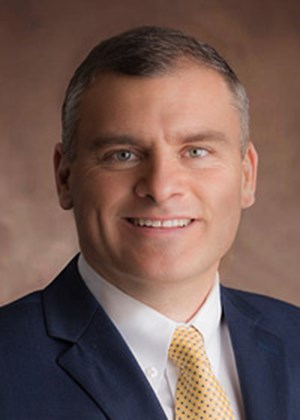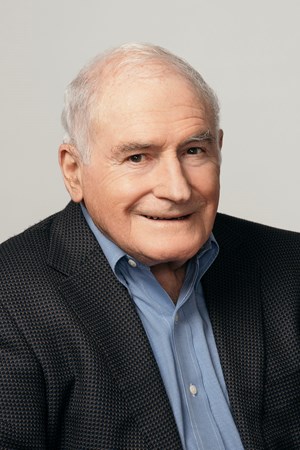IADC Annual General Meeting: Drillers identify key issues of concern
As the Annual General Meeting of the International Association of Drilling Contractors (IADC) continued Thursday afternoon in Austin, Texas, it featured wide-ranging commentary from three panelists on issues of concern during the “Drillers Outlook.” In addition, the afternoon included interesting assessment of the 2024 U.S. presidential election process underway from renowned analyst Dr. Richard Murray, professor at the University of Houston. Suffice it to say, both sessions gave the audience plenty to talk about for the balance of the day.
Drillers Outlook session. This grouping was geared to include industry leaders representing land and offshore with U.S. and global scope. They shared their view on key issues from both a personal and company perspective.
First up was Dan Hoffarth, CEO at Calgary, Alberta-based Citadel Drilling Ltd. He brings a thorough knowledge of the drilling sector, having come up through the ranks, starting his careers as a floorhand and working through all positions in a drilling contractor environment. In addition, he is a founding member of Citadel, with over 30 years of experience in the drilling and service sector of the industry. If anyone ought to know a few things, it’s Hoffarth.
And he certainly didn’t hold back anything. From his perspective, there are four key issues that drillers are having to battle, and which are weighing on the contracting sector. These include regional conflicts (as in Ukraine and Israel-Hamas); high costs (inflation is still felt in costs for equipment and goods); global demand (remains finicky and unpredictable); and difficulty in attracting capital (financial institutions avoiding lending money to oil and gas projects).
Yet, despite these overarching issues, Hoffarth declared that “we have control over the way we conduct our business.” He said that the health of a drilling contractor can be compared to the base of a platform rig. “Each leg is a factor of the company,” explained the CEO. These factors include employee quality, leadership and culture, and shareholder value. “I look at these areas, and I feel like our industry is under attack,” said an exasperated Hoffarth. “We are no longer building new rigs. We no longer see start-up drilling companies. What do we need to do to survive?”
Answering his own question, Hoffarth said that industry companies need to adapt to a changing business environment that they operate in. And he believes that companies need to work together more than ever. “Our social license to operate is dependent on everyone in this room.”
Next up was Roddie Mackenzie, Executive Vice President, Marketing and Innovation, & Chief Commercial Officer, Transocean. He said his firm’s strategy has been to deliver safe, reliable and efficient operations, deleverage the balance sheet, and innovate and introduce new technology.
Front and center since 2014 has been a significant fleet transformation, added Mackenzie. “We went from a larger number of rigs to a smaller number by scrapping older rigs,” he explained. “We scrapped 60+ rigs, but we’ve also added some new ones, as well.” According to Mackenzie, the technology of today that Transocean feels is important to the industry’s current status and future includes robotics and automation; remote operations; digitalization; safety and operational integrity; and low-carbon operations.
In addition, there are some market realities that he believes are still not understood, much less acknowledged, by the general public, mainstream media and certain government officials. “Let’s face it, all facets of energy are still growing, even coal, and even using EIA figures,” pointed out Mackenzie. “This business about peak demand is nonsense. Peak oil is nowhere near [us]. Investment in deep water makes sense. There is a strong growth outlook with low oil price sensitivity.”
He noted that the duration of floater fixtures is going up—“we’re now back on track for longer contracts.” Rig utilization on floaters remains high (95%) this year, and will be up to 100% in 2024, he said. Summing up the operating situation for offshore contractors, Mackenzie declared, “After eight years of winter [financially], cash flow is coming!”
Finishing off the session was Trent Latshaw, Founder & President of Latshaw Drilling Company, and a World Oil editorial advisor. He prefaced his talk by noting that he hit a personal milestone last year, hitting 50 years of working in the industry. From that perspective and knowledge based, Latshaw said, “I think this industry has a great future, despite what all these left-wing [people] have to say.”
From that statement, Latshaw evolved to a discussion of what keeps him concerned the most lately. In other words, given the regional conflicts that have popped up in Ukraine and the Middle East (Israel-Hamas), could one of these expand into a greater war? And if something does expand into the equivalent of World War III, would the U.S. be prepared to win it, just as it won World War II in cooperation with a number of allies.
Latshaw said there were several main factors that helped the U.S. and its allies win World War II. These included the following:
- Manufacturing might—an ability to quickly build thousands of vehicles, tanks, planes and ships
- Oil production—"the U.S. provided 85% of the oil used by the Allies, as U.S. output actually rose from 3.7 MMbopd to 4.7 MMbopd during the war,” said Latshaw.
- Righteous indignation.
Unfortunately, pointed out Latshaw, while the U.S. was the number-one steel producer globally during WWII, it now ranks fourth behind China, India and Japan. Furthermore, the U.S. was the biggest shipbuilder during WWII, but now it is not even in the top 15 countries for shipbuilding. In a related statistic, “the U.S. is also woefully short of requisite blue-collar labor that is required for these activities.”
However, there is one good bit of news, when it comes to war preparedness, he said. “The U.S. has a good oil production situation for fighting a war. Production in the last 10 years is up from a low of 5.3 MMbopd to 13.1 MMbopd this year.”
Assessing the 2024 U.S. presidential election. After the stimulating presentations by the drilling executives, Dr. Richard Murray, professor at University of Houston (U. of H.), kept the crowd’s attention with a very informative, history-laden assessment of the U.S. presidential election process, as it stands today. During a 55-year teaching career, Murray founded the Hobby School of Public Affairs at U. of H. in 1981. He currently is Senior Research Fellow, as well as holder of the Bob Lanier Chair in Urban Public Policy, at the Hobby School of Public Affairs. As such, Murray has been a fixture on local television news in Houston, providing expert analysis of various elections. And during his long career, he has been a consistent rare commodity—a middle-of-the road, even-handed analyst, not tending to side with one political extreme or the other.
So, as Murray walked up to the podium on Thursday afternoon, he had now way of knowing that at that instant, news flashed on the cell phones of many in the audience (including this editor) that incumbent Senator Joe Manchin (D – W.V.) had just announced that he would not run for re-election. This is widely interpreted as potentially having an impact on the presidential race, so we will review Murray’s assessment with that in mind.
Nevetheless, “this election (2024) has a good chance of being one of those pivotal elections,” declared Murray. “{Former President Donald] Trump has transformed U.S. politics since coming down the escalator at Trump Tower on June 16, 2015. And while Trump could duplicate Grover Cleveland’s feat of non-consecutive terms, Trump is not Grover Cleveland. He is very unique; he has reshaped U.S. politics.”
He went on to say that the Democrat Party is much different today, reflecting that “a far different polarization” exists in the U.S. “Republicans used to win the wealthy districts in years gone by,” analyzed Murray. “Today, Republicans struggle to win in wealthy neighborhoods, yet they now pick up blue collar districts that they never won before. For instance, Minnesota District 8, which includes Duluth, was traditionally one of the most Democratic districts in the state. Today, it is the most Republican district.”
Murray acknowledged that there is a high chance of a Biden-Trump rematch in 2024, although it may not suit the taste of many in the electorate. “Biden vs. Trump is a match-up like we’ve never seen before,” he said. “A big factor is how many people in both parties don’t want either Biden or Trump. But absent some dramatic event, and health issues aside, Donald Trump is on track to win the Republican nomination. He may have it locked up by early March. And Biden, likewise, is on track to win. I think Trump is going to get every delegate in [the] California [Republican primary] on March 5. And he’s going to get every delegate in Texas.”
The professor said this situation is rooted in the complex way in which the parties award delegates. Asked if the Biden-Trump re-match would result in a lot of third-party voting, Murray said rather forcefully, “I don’t think so. However, this election may generate high voter turnout.”
Looking at global conflicts and other factors, Murray noted that “what we decide to do presidentially has great ramifications worldwide. It’s a dangerous world out there, and it’s not getting better. The reality is (sounding a bit like Latshaw’s remarks), we can end the world quickly, given military technology advances.” But back to the election, he said with a shrug, “who will win? I don’t know.”
Asked by someone in the crowd about the new U.S. House Speaker, Mike Johnson, Murray drew some laughter from the audience when he said, “this is like one of those jobs running the city jail—why would you want it? You should include Mike Johnson in your prayers; he’s going to need them.”
As for other potential presidential candidates, Murray threw cold water on those thoughts. “Michelle Obama doesn’t want to be turned to. She is extraordinarily unlikely to seriously entertain this possibility. I also think it’s highly unlikely to have a viable third-party candidate, given the strong feelings on both sides.”






